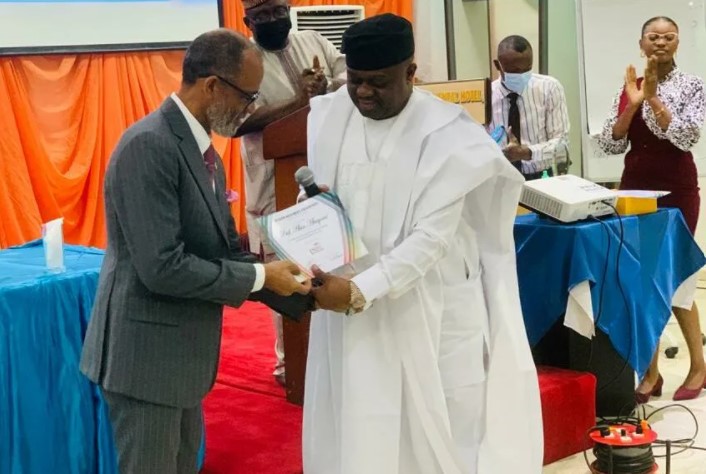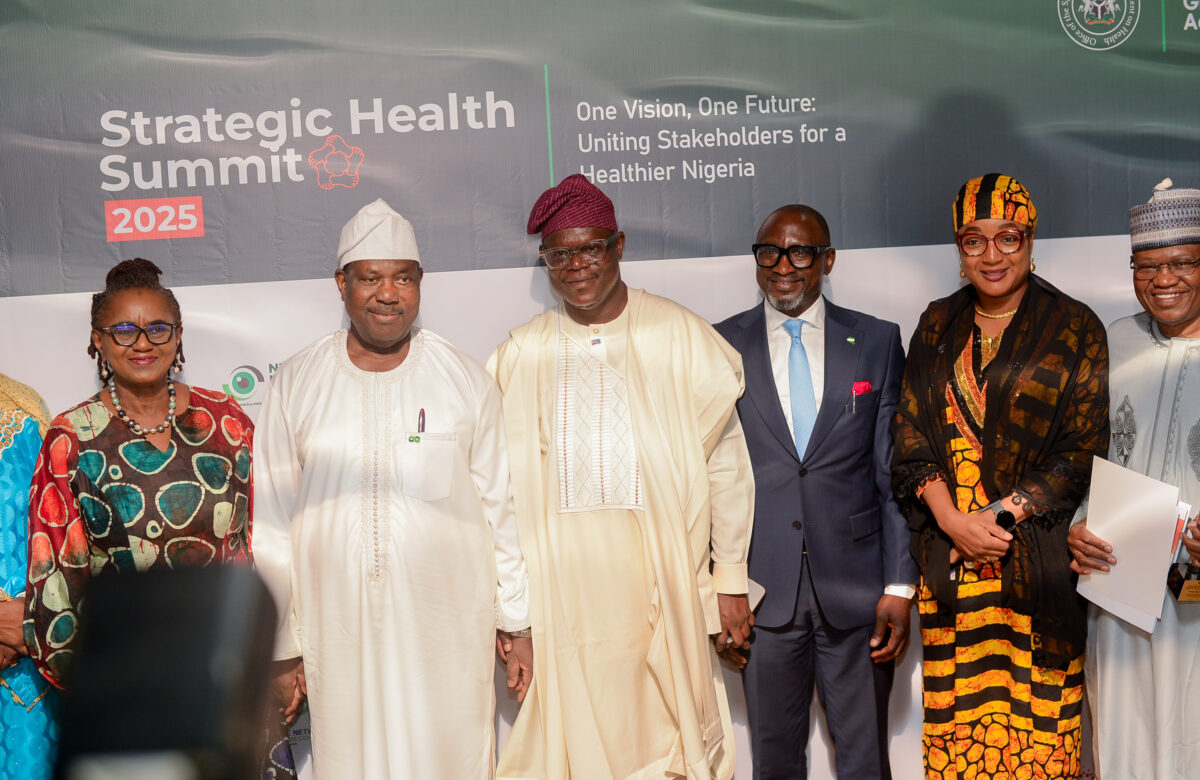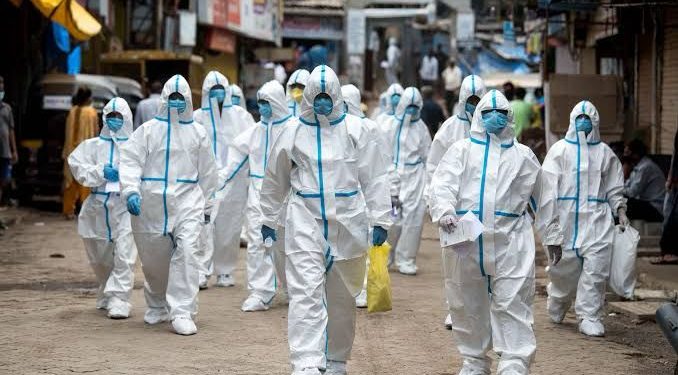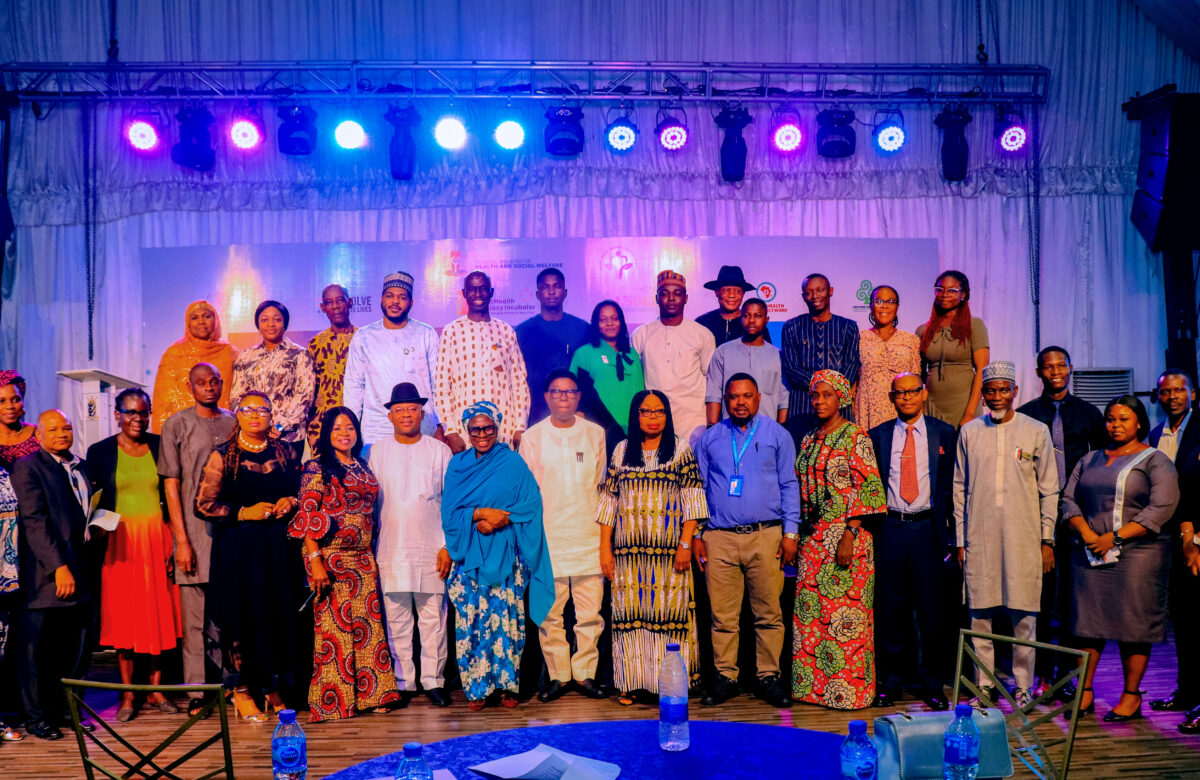
Learning From Lagos and Kano in Preparing For Disease Outbreaks
- Health SecurityLagos State
- No Comment
- 278
Lagos, Nigeria’s largest city and the one most hit by the COVID-19 pandemic would have experienced a far more devastating outcome if not for the far-reaching health security strategy already on ground before the outbreak of the deadly disease.
The Lagos health commissioner, Mr. Akin Abayomi, disclosed this Tuesday in Abuja during the health security policy and financing forum organized by the Legislative Advocacy Initiative for Sustainable Development (LISDEL) through its Prevent Epidemic project (PE) in Abuja.
Themed, “Exemplary Health Security Policy and Financing Reforms at the Sub-national Level”, the event had in attendance, lawmakers, health commissioners and others in the health sector.
Lagos and Kano were the two states singled out for their health security investment and planning as examples for the rest of the state across the country to emulate.
A major highlight of the event was the presentation of the Health Security Champion Award to the Lagos health commissioner, Mr. Abayomi.
How Lagos prepared for COVID-19
In his presentation, Mr. Abayomi, a professor, narrated how Nigeria’s commercial nerve started preparing for any other impending outbreak after a near excellent containment of the deadly Ebola incursion in Lagos in 2014.
Through the impeccable efforts of a team of health workers including late lead Consultant Physician and Endocrinologist, Ameyo Stella Adedavoh, Nigeria was able to contain Ebola only in Lagos, limiting its spread to less than 20 people and eight fatalities.
Mrs. Adedavoh and four of her colleagues, however, paid a heavy price. They died after contracting the disease while trying to treat Patrick Sawyer, the index case and prevent the disease from spreading further.
“After Ebola, we sat and thought of how devastating it would have been if there was a massive outbreak in Lagos, a city of over 21 million people and that was when the planning started,” Mr. Abayomi said noting that his predecessor, Jide Idris, played a major role in setting up the health security strategy.
The health commissioner also noted following the outbreak of Ebola, there was an estimation by the World Health Organization (WHO) that an imminent viral disease (agent-x) would break out across the globe within the next five years.
“We started preparing, making laws and policies, building infrastructures and training health personnel.
“It was called agent X by WHO because nobody knew how the disease would operate or what it is. But what we did was that we started training our people on how to manage outbreaks relatively in our own environment,” the health official explained.
Mr. Abayomi said some of the infrastructure used in the management of COVID-19 including the Lagos State Infectious Disease Centre were built before the pandemic.
Lagos reported the index COVID-19 infection in Nigeria in an Italian traveler and has remained the hardest hit state by the contagion.
Nearly a hundred thousand people have so far contracted the disease in Lagos, about a third of the country’s total of 254, 953.
The health commissioner agreed that the contagion has heavily impacted the commercial city but also noted that it would have been worse.
Listing the advantages of the health security investment already in place post COVID, the official said all the funds used in managing the pandemic did not affect the state health budget.
He also noted that there was no collateral damage for other health priorities because of the COVID-19 response.
The unprecedented disruption on health care delivery created by the COVID-19 pandemic was and is still causing problems for health systems across the globe.
Mr. Abayomi said those disruptions largely receded in Lagos due to the health security strategies.
Why lessons should be replicated
While applauding Lagos and Kano for their health security systems, officials at the event agreed on the need for such successes to be replicated in the entire 36 states and the Federal Capital Territory (FCT).
President of LISDEL, former chairman senate committee on health, Sen. Dr Olanrewaju Tejuoso, said States that have not met the health security benchmarks could approach those that have done so and learn from them on how to do better.
He said to properly fund health security at the subnational level, there is need for proper utilization of minimal resources, ensure right persons in positions and ensure speedy implementation of health security plans.
Dr Abdul-Gafar Alawode, Project Director, Prevent Epidemics Project, applauded Lagos and Kano States for their policy and institutional frameworks for health security but noted that two states were not enough.
He said the PEP project has been supporting states to conduct external evaluation, which forms the basis of domesticating the National Action Plan for Health Security (NAPHS), developing legal frameworks, budget lines for health security and successful budget advocacy.
Mr Alawode said there is need for a financial framework at sub-national level because state governments also have the responsibility in implementing NAPHS, as the federal government and partners alone can not adequately fund health security.
Dr Ifedayo Adetifa, Director General Nigeria Centre for Disease Control (NCDC), said strong state political and technical leadership is required for sufficient and sustainable health security funding.
Represented by the Head of Department, Surveillance and Epidemiology, NCDC, Elsie Ilori, he said the process toward improving health security requires continuous evaluation of capability and addressing resource gaps.
Mr Abayomi in an interview with journalists after the event shared lessons learnt from COVID-19 management.
He said setting standards according to international best practices, working closely with relevant health bodies, not compromising quality and inclusion of the private sector helped Lagos in its pandemic response and health security investments.
He said lessons also include the fact that political buy-in is strategic in securing a robust health security and that the private sector can be coordinated to provide more synergistic support for a better health security.
Moji Makanjuola, veteran journalist and broadcaster, said in her remark that the role of the media in bringing the states and government stakeholders up to speed cannot be overemphasized.
She charged health journalists to do brave and critical reporting that will illustrate the importance of health security investment.
Health security aims to prevent, detect, and respond to infectious disease threats. In practice, this is limited to specific activities, including strengthening surveillance systems and improving risk communication.
By Ebuka Onyeji
What other states can learn from Lagos, Kano in preparing for disease outbreaks





